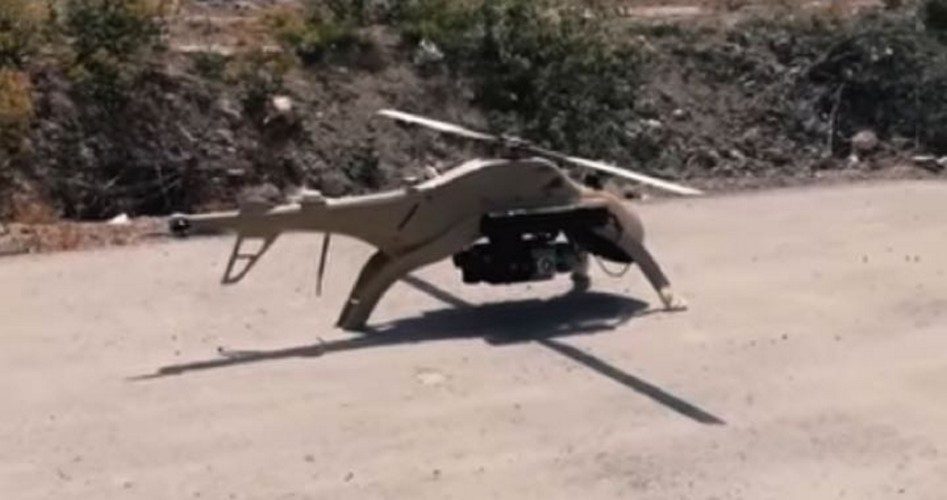
China is preparing to sell weaponized drones to the kingdom of Saudi Arabia, drones with the range and the materiel capable of carrying out strikes against other countries in the region, according to a statement made by U.S. Secretary of Defense Mark Esper made earlier this month.
“As we speak, the Chinese government is already exporting some of the most advanced military aerial drones to the Middle East, as it prepares to export its next generation stealth UAVs when those come online,” Esper told the audience gathered at the National Security Commission on Artificial Intelligence Public Conference held in Washington, D.C. on November 5.
“In addition, Chinese weapons manufacturers are selling drones advertised as capable of full autonomy, including the ability to conduct lethal targeted strikes,” Esper added, apparently careful not to step in the puddle of irony forming at his feet because of the numerous war goods the United States exports.
The inventory of deadly drones and the weapons with which they can come equipped was provided in a report published by the Center for a New American Security:
China’s government already is exporting many of its most advanced military aerial drones to Middle Eastern countries such as Saudi Arabia and the UAE.
China’s government has stated that it also will export its next generation stealth drones when those are available.
Though many current generation drones are primarily remotely operated, Chinese officials generally expect drones and military robotics to feature ever more extensive AI and autonomous capabilities in the future.
Chinese weapons manufacturers already are selling armed drones with significant amounts of combat autonomy. Ziyan, a Chinese military drone manufacturer, has sold its Blowfish A2 model to the UAE and in November 2019 reportedly was in negotiations with Saudi Arabia and Pakistan for Blowfish A2 sales.
Ziyan’s website states that the 38kg Blowfish A2 “autonomously performs more complex combat missions, including fixed-point timing detection, fixed-range reconnaissance, and targeted precision strikes.”
Depending on customer preferences, Ziyan offers to equip Blowfish A2 with either missiles or machine guns.
Secretary Esper is worried that China’s lack of human rights restraint might result in this technology being sold to and used by users who will deploy these drones in furtherance of inhumane policies, particularly in the Middle East, an area already violent and void of limits on the use of lethal military technology.
Of particular concern in China’s sale of powerful robotic weapons to Saudi Arabia is those devices potential deployment in the kingdom’s continuing assault on Yemen. As I reported for The New American in September:
The Saudis and their allies — principally their fellow Sunnis in the UAE — have carried out their “holy war” in a most unholy and inhumane way.
Just days ago, a Saudi bombing raid in Yemen resulted in more than 100 people dead and led to “Yemeni medical workers pull[ing] bodies from the bombed-out detention center run by the rebels [the Houthis].” The International Committee of the Red Cross reported that “dozens of people were wounded and more than 100 people were ‘presumed killed,’” as reported by the Washington Post.
It was this attack that motivated members of Congress to back a bipartisan bill to put an end to the U.S. government’s assets being used to commit such senseless acts of violence.
The Saudi savagery is unconscionable and the U.S. financing of it is unconstitutional. Setting aside the latter for a moment, here’s a report of some of the most barbaric atrocities committed by the Kingdom of Saudi Arabia, as published by the Washington Post:
“The Saudi-led coalition, which is aligned with Yemen’s internationally recognized government, is accused of intentionally starving Yemenis as a tactic of war and killing thousands of civilians in airstrikes.”
And:
The stalemated conflict in Yemen, which has killed tens of thousands of people and thrust millions into near-famine conditions, has prompted widespread humanitarian criticism of the United States and Saudi Arabia.
By some estimates, the conflict has killed as many as 95,000 people, including tens of thousands of civilians, violating international humanitarian laws.
Time and again, the Saudi-led coalition has promised to investigate such alleged violations through its internal Joint Incidents Assessment Team. But coalition airstrikes on civilian targets — hospitals, clinics, markets, even school buses carrying children — have been unrelenting.
Of course, when the prospect of financial gain and military conquest combine, there is scarcely any other consideration that can oppose them successfully.
Weaponized unmanned autonomous vehicles whirring above battlefields of the Middle East, delivering death wholesale without regard to the justness of the cause or the identity of the targets, is an apocalyptic scenario no sane man would welcome in our world.
I’ll close with a statement written by the influential Hugo Grotius, a man whose treatise on war and peace was the source of our Founding Fathers’ concept of just war: “We then first declare, if the cause of the war be unjust, tho’ it be undertaken in a solemn manner, yet all the acts of hostility done in it are unjust in themselves. So that they who knowingly do these acts, or join in the acting of them, are to be accounted in the number of those, who without repentance cannot enter into the kingdom of Heaven (1 Cor. vi. 10).”
Image of blowfish: Screenshot of YouTube ad by Ziyan



